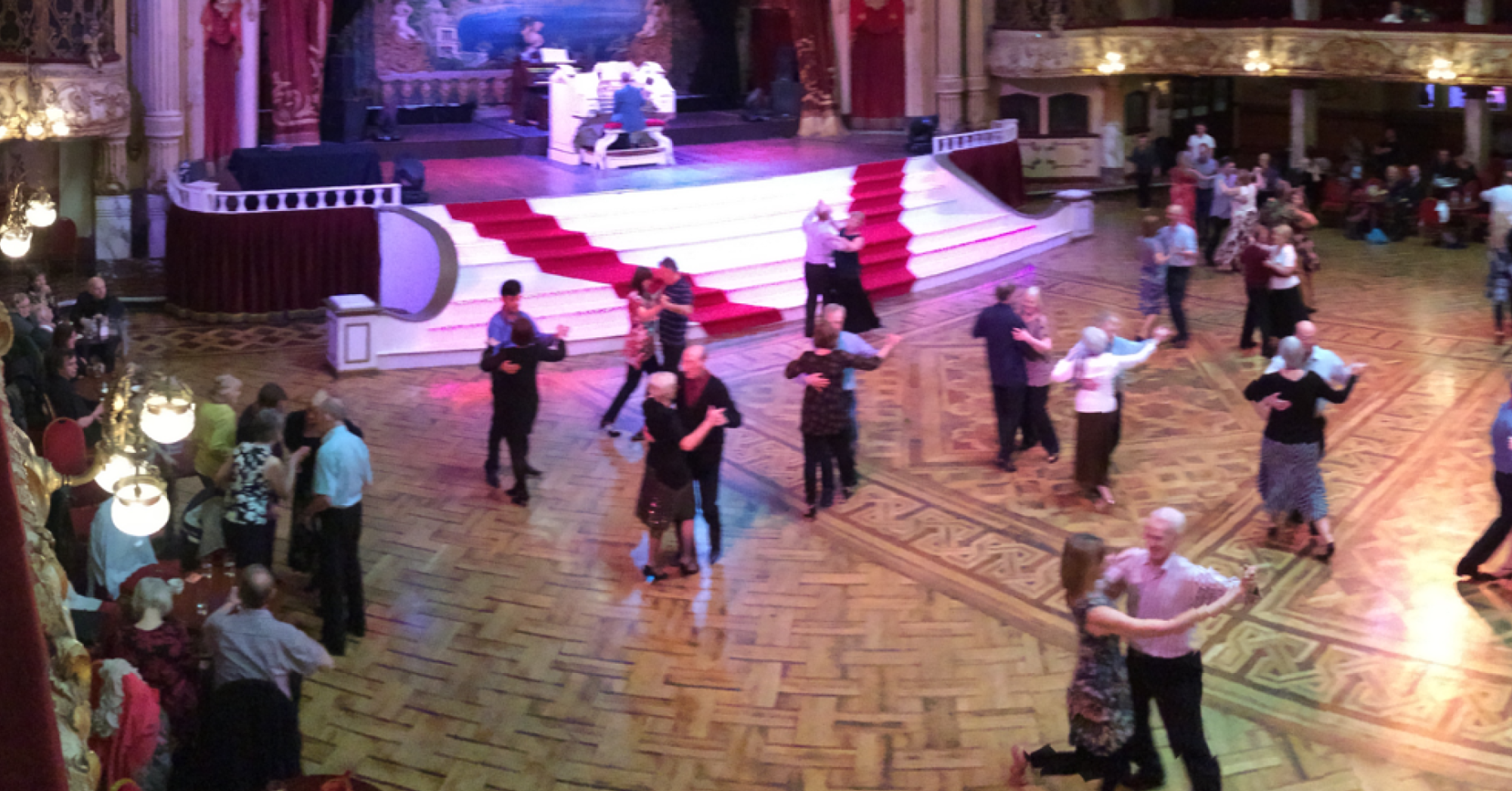In our last article, we covered some of the basic ballroom arm styling we use to accentuate our body movements. Today, we take a look at how to modify our arm styling to better express different styles of movement.
Your arm movement should travel out as a result of body movement. If your body swings to the left, your arm styling should travel in the same direction, after the body has begun to move.
Matching the Music
Obviously, an important part of expressing the music is matching it’s tempo. If the music is fast, your body will move faster and your arms will follow. Regardless of when your arm movement starts, it should aways fully extend or complete at the same instant as your weight change.
Sharp VS Soft
The music may be punctuated by sharp staccato beats (like a tango), or a softer, continuous sound, (most waltzes). Your ballroom arm styling can reflect these changes by completing their movement with a sharper flick of the wrist, or a more slowly, as if dancing in water. In this case, it is the final punctuation that gives the sharp or soft finish – even if you started slowly, you can still add a powerful exclamation at the end with a snap of the wrist, and vice versa.
As the music changes, so should your styling. Otherwise, it’s like eating the same meal every day for a year – even if it was great to start, it WILL get boring eventually.
The Role of Tension
What if the music is strong and aggressive, but lacks staccato? (For example, listen to ‘The Assassin’s Tango’ here.) We can increase tension in our arms and reduce the bend in our elbow and wrist, creating strong lines of power. Or, if the music has become more fun and playful, we can relax our arms and curve them more to create a more sensual or sexy look, as with rumbas and salsa dances.
More tone and straighter arms is considered more ‘masculine’, and softer, curved arms more ‘feminine’. It’s usually wise to err on the side of your respective sex.
Play with these variations in movement with songs you are comfortable with. Find out what matches the music, and as always, be patient. Sensing how to best express what we hear may well take a lifetime. The reward is a better expression of the grace and beauty you hear, both within you, and to those watching.
